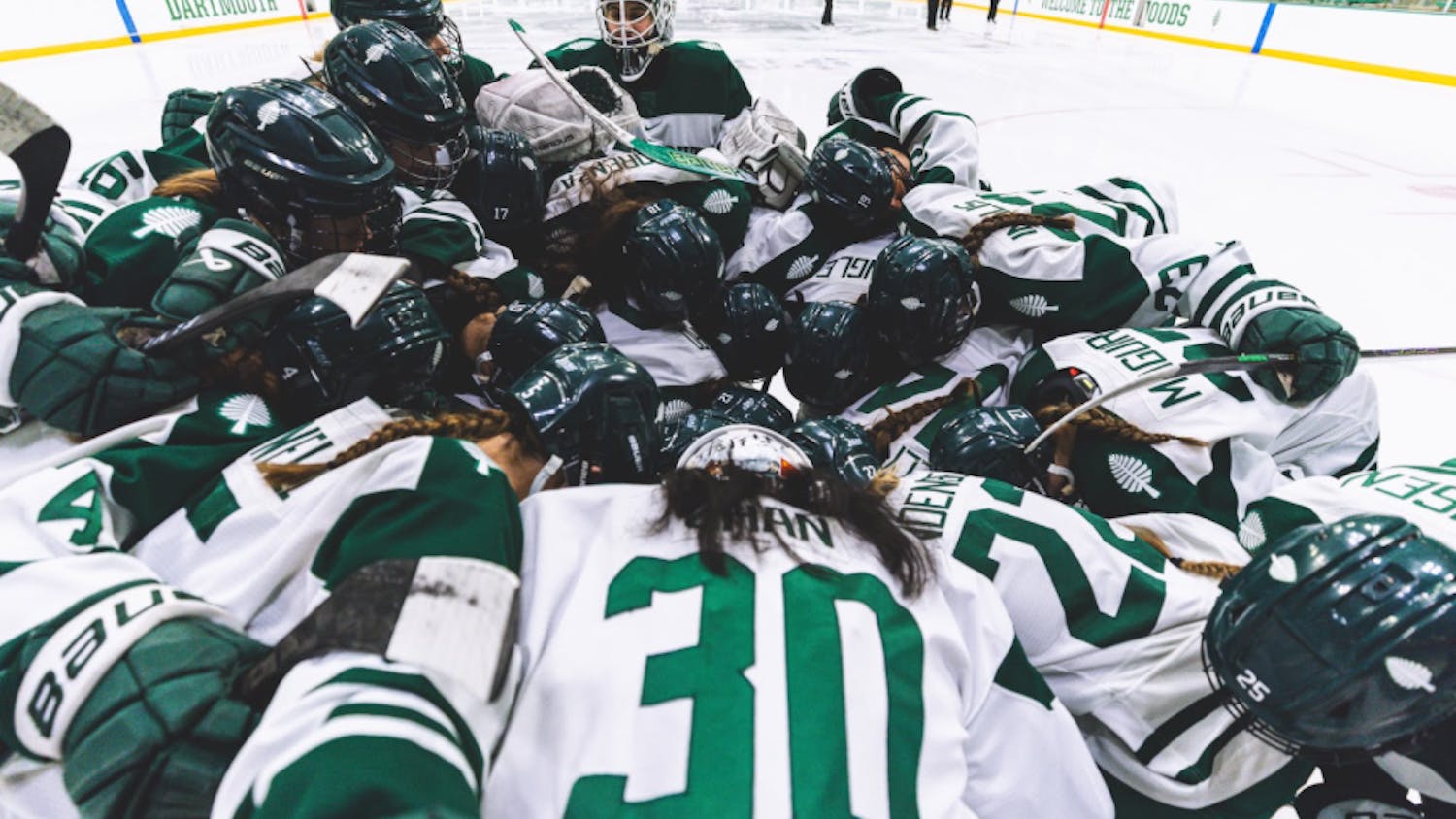In its second summer, the Dartmouth Peak Performance (DP2) DRIVE program has seen its participation expand to 100 student-athletes from 70 participants last year, senior associate athletics director for peak performance Drew Galbraith said. While the adjustment to a larger number of students has not changed the program’s focus, it has reduced the number of experiential exercises included over the course of the summer and increased the number of DP2 staff involved, program leader and assistant athletics director for leadership Steven Spaulding said.
The summer programfor varsity athletesis intended to develop leadership skills through experiential exercises, classroom sessions and conversations with guest speakers. DRIVE serves as part of DP2’s four-year leadership development program.
Unlike last summer’s program and the other leadership programs that have run in past years, DRIVE is open to all varsity athletes this summer, Galbraith said, which may help explain the higher participation. Previously, coaches and captains had nominated participants to similar programs.
“We wanted to create a program that would be available to any student who wanted to participate, regardless of whether they were someone who would be an All-Ivy performer or someone who is out there for the love of the game and the love of their team,” Galbraith said.
Anticipating the increased number of participants, the number of experiential exercises has been reduced from roughly seven or eight exercises last year to four this summer, Spaulding said. Simultaneously, organizers have increased the quality and scope of the exercises.
One such exercise is a water adventure race planned for this Thursday, in which athletes will boat and complete a number of activities during an island stopover, Spaulding said. During experiential exercises, Spaulding works with team leaders and their groups to provide feedback and to translate leadership lessons learned in the classroom sessions into a practical, applied environment.
“I’m not trying to get athletes better at rowing boats. I’m not trying to get them better at navigating in the woods,” he said. “What I’m trying to get them better at is leadership, and I’m using some of these contexts to do that with them.”
Changes from last year, based on feedback from former participants, include a greater focus on a consistent framework across exercises and increased communication with guest speakers to further tie their commentary into the program’s other components, Spaulding said.
Past speakers have included College President Phil Hanlon, athletic director Harry Sheehy and deputy director of the Rockefeller Center Sadhana Hall.
“The content that we’re talking about isn’t just applied right on your team the next year,” Spaulding said. “What’s the bigger picture of this? How does it connect to the athletic department, how does it connect to the College, how does it connect beyond here to life?”
DRIVE participant and softball player Brianna Lohmann ’16 said it was a “no-brainer” for her and a number of her teammates to participate in the program, as they were interested in developing leadership skills. An experiential exercise involving an obstacle course has been her most memorable moment in the program so far. One of her teammates got stuck because of her harness, she said, as participants pulled themselves across a dry creek bed using ropes.
“It didn’t stop our team and we really bonded together and got behind all of our teammates,” she said. “It was awesome to see how fast we bounced back.”
Volleyball head coach Erin Lindsey said all of her sophomores are competing in the DRIVE program. Last year, Lindsey said she saw benefits from the program in her student-athletes.
“The plain fact that they’re thinking about [leadership] and working at bettering themselves as leaders is something that becomes really obvious when they come back to the team,” she said. “They have a larger perspective and view on what it means to lead other people.”
Varsity coaches in six other sports could not be reached for comment via calls to their office phones on Thursday afternoon.
Henry Arndt contributed reporting.



